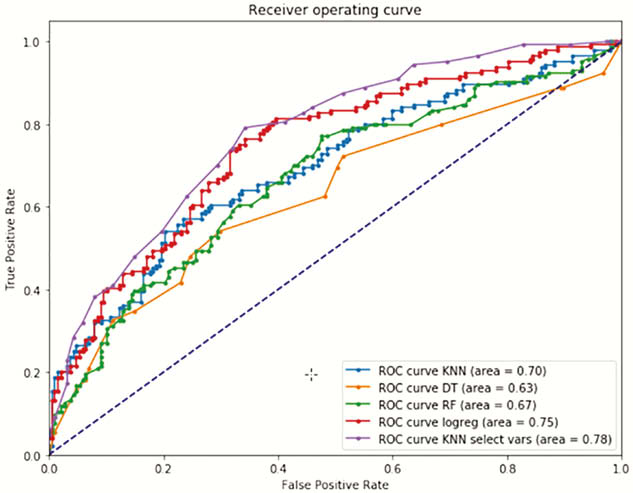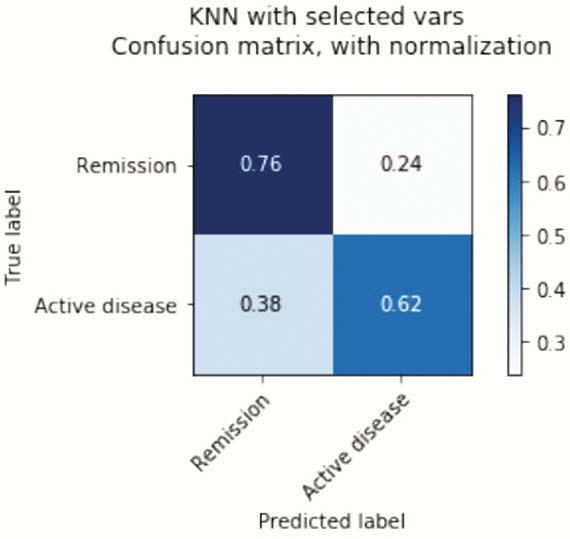DOP40 Does levels of concerns and expectations predict IBD disease status?
V. Pittet, Swiss IBD Cohort Study
Center for Primary Care and Public Health, University of Lausanne, Epidemiology and Health Services, Lausanne, Switzerland
Background
Patient-reported disease perceptions may influence disease management thus health outcomes. Previous studies showed that concerns and expectations are numerous in IBD patients. Such perceptions may be indicative of overall well-being, thus of individual quality of life. We aimed at assessing if quality of life and its perceptions may predict clinical disease status in IBD patients.
Methods
We conducted a cross-sectional study on adult patients included in the Swiss IBD cohort study (SIBDCS). We sent patients a questionnaire on concerns and expectations, including a question on frequency and severity of their symptoms. We retrieved data on demographics, clinical parameters, treatments, and psychosomatics data from the SIBDCS databases. We built a binary outcome for disease status (clinical remission / active disease). Predictors associated with disease status were assessed through a series of classification models (K-nearest neighbours (KNN), decision trees, random forest and logistic regression). ROC curves were used to compare models predictive performance. We used a confusion matrix to visualise classification results.
Results
A total of 1102 patients were included in the study (54% CD, 54% women, mean age: 48 years, disease duration: 15.7 years). Among those patients, 623 were classified as being in clinical remission and 479 in active disease. We used 771 cases for training and constructing models, and the remaining 331 cases to test the respective models. The KNN model with selected variables showed the best prediction accuracy (precision/recall of 0.72/0.76 for remission and 0.67/0.65 for active disease), Figure 1 and Figure 2. Selected variables that contributed the most to the model performance were the following: age, hematocrit level, SF-36 overall mental and physical quality of life (QoL), IBD-specific QoL, coping based on distraction, disease and treatments concerns and expectations, and the absence of abdominal pain.


Conclusion
Prediction accuracy of the model was good to moderate. We found the variables that were important to predict our outcome were highly related to quality of life or perception of quality of life (concerns and expectations).


